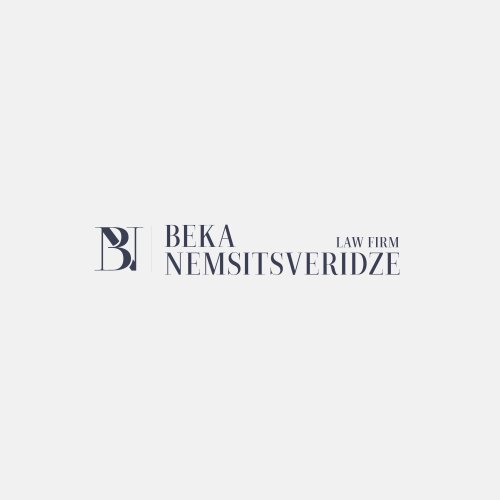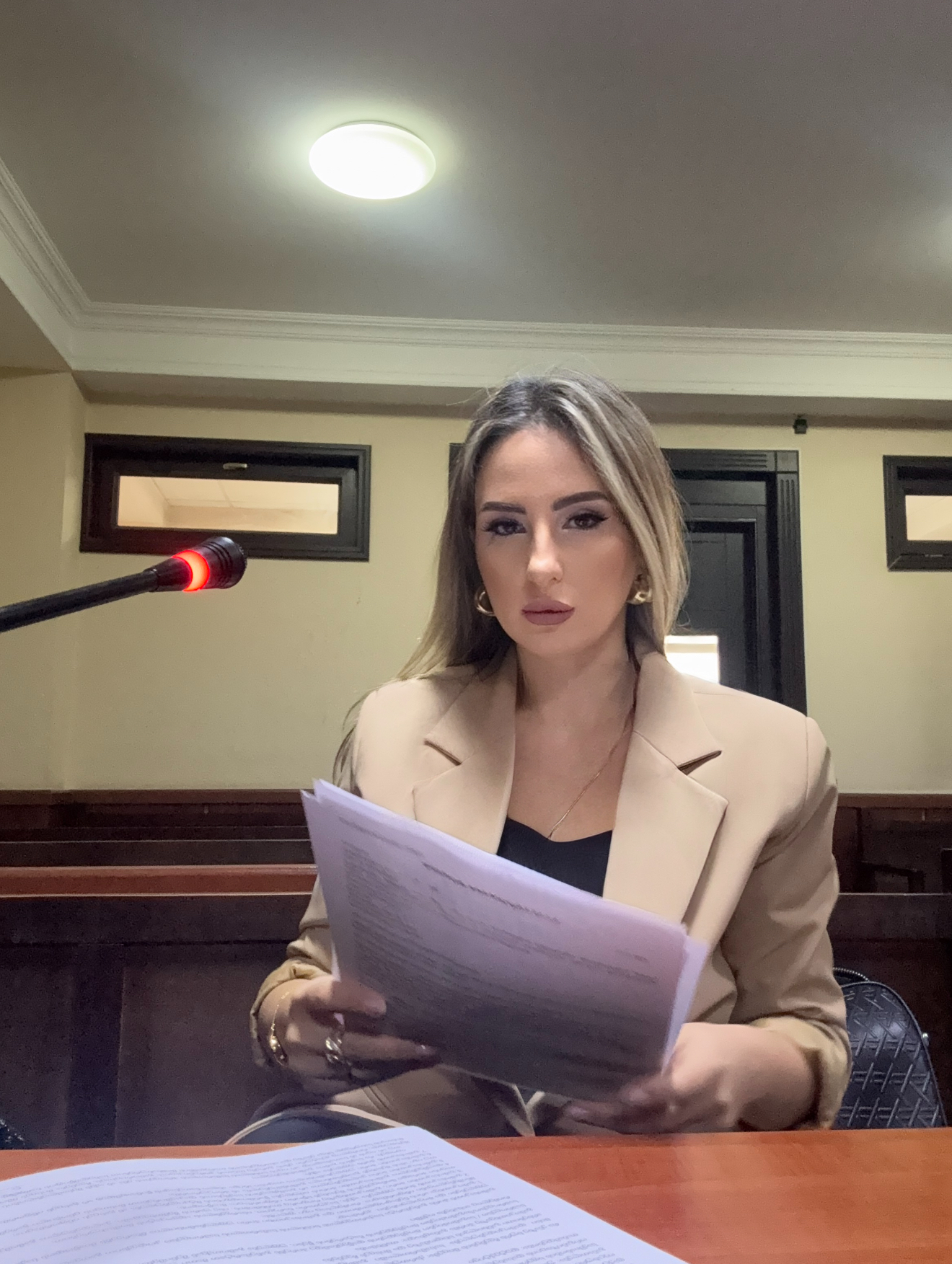Best Juvenile Law Lawyers in Tbilisi
Share your needs with us, get contacted by law firms.
Free. Takes 2 min.
List of the best lawyers in Tbilisi, Georgia
About Juvenile Law in Tbilisi, Georgia
Juvenile Law in Tbilisi, Georgia, pertains to the legal matters involving individuals who are under the age of majority, which in Georgia is set at 18 years. This area of law focuses on the protection of children and their rights, dealing with issues such as juvenile delinquency, child protection, custody disputes, and adoption. The aim of Juvenile Law is to rehabilitate and guide minors towards a constructive role in society while ensuring their well-being and development. The Georgian legal system strives to treat juvenile cases with a sense of heightened care and a focus on rehabilitation over punishment.
Why You May Need a Lawyer
There are several circumstances in which seeking legal help in Juvenile Law might be necessary. Parents or guardians may need assistance if their child is involved in a criminal case or is accused of delinquent behavior. Legal guidance is also important in situations concerning child welfare, including abuse, neglect, or when the state intervenes to place a child in foster care. Additionally, legal expertise may be required for adoption processes or in complex custody battles where the best interests of the child are paramount. A lawyer specializing in Juvenile Law can help navigate these sensitive situations while protecting the rights of the minor.
Local Laws Overview
The Juvenile Law system in Tbilisi, Georgia, is governed by various legal documents and statutes that outline the treatment and rights of minors. One key aspect is the Juvenile Justice Code, which establishes the principles for prosecuting and rehabilitating minors who commit offenses. It promotes alternative measures to detention and emphasizes the importance of education and social reintegration. The Civil Code of Georgia also contains provisions concerning the rights and responsibilities of minors, as well as legal processes for adoption and guardianship. Child protection laws are in place to secure the safety and well-being of children, and family law covers issues of custody and parental rights.
Frequently Asked Questions
What age does the juvenile justice system cover in Tbilisi, Georgia?
The juvenile justice system typically covers minors from the ages of 14 to 18. Children under this age range may still be involved in legal proceedings, but with different procedures and considerations.
What rights do minors have in juvenile proceedings?
Minors have the right to legal representation, the right to a fair and speedy trial, and the right to be treated with respect for their age and developmental stage. They also have the right to have their privacy protected throughout the proceedings.
Can parents be held responsible for their children's delinquent acts?
In some cases, parents or guardians can be held legally responsible for the acts of their children, depending on the circumstances and the nature of the act.
What is the typical process for juvenile delinquency cases?
Juvenile delinquency cases often begin with an assessment by a juvenile justice officer, followed by a decision on whether to divert the case from formal court proceedings or to move forward with a formal hearing. Rehabilitation and alternative measures to detention are common approaches.
How does the law handle child victims of crimes?
Child victims of crimes are provided with special protections and care to ensure their safety and to minimize trauma. This may include the use of specialized interview techniques and the provision of psychological support.
Is juvenile criminal record kept confidential?
Juvenile criminal records are generally kept confidential, but there are exceptions depending on the severity of the offense and the applicable laws.
What happens if a minor is taken into custody?
If a minor is taken into custody, the authorities must follow strict protocols to ensure the child's rights are upheld. This typically includes notifying the parents or guardians and providing access to legal counsel.
Can a minor be tried as an adult?
In severe cases involving serious crimes, a minor may be tried as an adult, although this is rare and subject to the discretion of the court.
Are there any diversion programs for juvenile offenders?
Yes, there are diversion programs designed to provide education, counseling, and community service opportunities as an alternative to formal judicial proceedings.
How can I report child abuse or neglect?
To report child abuse or neglect, you can contact local child protective services, the police, or any other designated child welfare agency.
Additional Resources
For individuals seeking assistance in Juvenile Law, the following resources can be helpful:
- The Georgian Public Defender's Office - provides legal aid and support to individuals, including minors, for protection of their rights.
- Legal Aid Service of Georgia - offers free legal assistance to eligible individuals in criminal and civil cases involving minors.
- Local non-governmental organizations (NGOs) specializing in children's rights and welfare - these can provide support, advocacy, and sometimes legal aid.
Next Steps
If you need legal assistance in Juvenile Law, consider taking the following steps:
- Collect all relevant information and documents pertaining to your case or situation.
- Seek recommendations or conduct research to find a lawyer experienced in Juvenile Law.
- Schedule a consultation with the lawyer to discuss the details of your case and to understand your legal options.
- Follow the advice of your lawyer and cooperate with any legal processes, court dates, or required actions.
It is important to act promptly in legal matters involving minors to ensure their rights and best interests are protected throughout any legal proceedings.
Lawzana helps you find the best lawyers and law firms in Tbilisi through a curated and pre-screened list of qualified legal professionals. Our platform offers rankings and detailed profiles of attorneys and law firms, allowing you to compare based on practice areas, including Juvenile Law, experience, and client feedback.
Each profile includes a description of the firm's areas of practice, client reviews, team members and partners, year of establishment, spoken languages, office locations, contact information, social media presence, and any published articles or resources. Most firms on our platform speak English and are experienced in both local and international legal matters.
Get a quote from top-rated law firms in Tbilisi, Georgia — quickly, securely, and without unnecessary hassle.
Disclaimer:
The information provided on this page is for general informational purposes only and does not constitute legal advice. While we strive to ensure the accuracy and relevance of the content, legal information may change over time, and interpretations of the law can vary. You should always consult with a qualified legal professional for advice specific to your situation.
We disclaim all liability for actions taken or not taken based on the content of this page. If you believe any information is incorrect or outdated, please contact us, and we will review and update it where appropriate.










